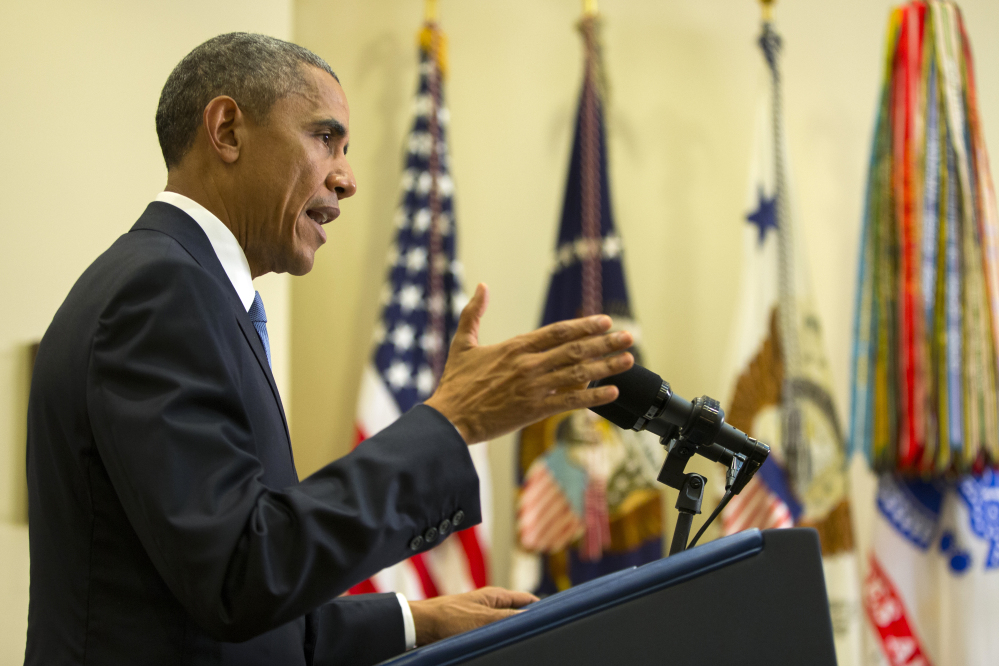WASHINGTON — President Obama conceded Wednesday that the U.S. government had let down the families of Americans held hostage by terrorists and promised they would not face criminal prosecution for paying ransoms to their loved ones’ captors.
“These families have already suffered enough and they should never feel ignored or victimized by their own government,” Obama said as he detailed the results of a six-month review of U.S. hostage policy.
The president said for the first time that U.S. government officials can communicate directly with terrorists and help families negotiate for the release of hostages. More than 30 Americans are being held hostage abroad, White House officials said.
The review was sparked by sharp criticism of the Obama administration from families of Americans kidnapped by the Islamic State, al-Qaida and other groups. Families have complained about receiving confusing and contradictory information from the government and bristled at threats of prosecution for considering paying terrorists to secure the release of hostages.
By clearing the way for payment of ransom without fear of criminal charges, Obama is essentially allowing families to take actions the U.S. government has long said put Americans at risk. While the government will continue to abide by prohibitions on paying ransoms or making other concessions to terrorists, the Justice Department indicated it would ignore the law in situations involving families.
European governments routinely pay ransom to win the release of hostages. However, Obama and his predecessors have argued that policy provides terrorists with funds to fuel dangerous activities and puts Americans at greater risk of kidnapping.
Critics of the White House review argue that allowing families to do what the government will not could lead to those same troubling consequences.
“We have had a policy in the United States for over 200 years of not paying ransom and not negotiating with terrorists,” said House Speaker John Boehner, R-Ohio. “The concern that I have is that by lifting that long-held principle you could be endangering more Americans here and overseas.”
Sen. John McCain, R-Ariz., said he, too, worries that paying ransom could encourage terrorism. But McCain, who met Wednesday with the family of Kayla Mueller, an Arizona woman killed after being kidnapped by the Islamic State, added that “to tell a family member – as this administration did – that they could go to jail is unconscionable.”
White House officials drew a distinction between the concessions private individuals could make to terrorists, which are largely financial, and the more wide-ranging deals the U.S. government could strike, including military activity and other foreign policy priorities.
Still, officials acknowledged that allowing some concessions and banning others could be perceived as a contradictory policy.
Send questions/comments to the editors.



Success. Please wait for the page to reload. If the page does not reload within 5 seconds, please refresh the page.
Enter your email and password to access comments.
Hi, to comment on stories you must . This profile is in addition to your subscription and website login.
Already have a commenting profile? .
Invalid username/password.
Please check your email to confirm and complete your registration.
Only subscribers are eligible to post comments. Please subscribe or login first for digital access. Here’s why.
Use the form below to reset your password. When you've submitted your account email, we will send an email with a reset code.